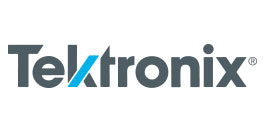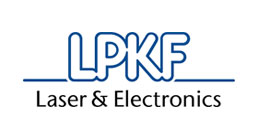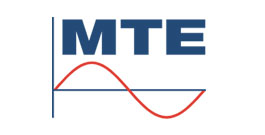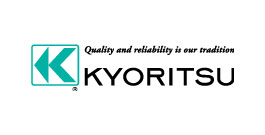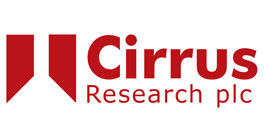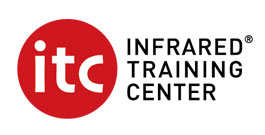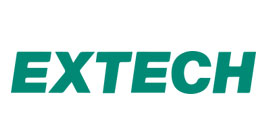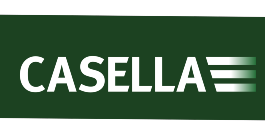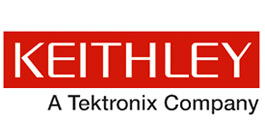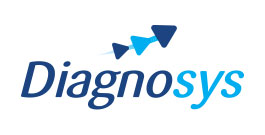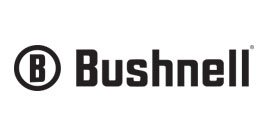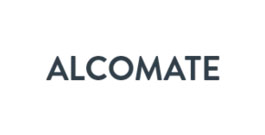We provide
In-house or Onsite Trainings for all the instruments we sell.
ITC Category 1 Thermography Course
This course prepares the student for qualification as a cat. 1 certified thermographer. The participant will learn about the basics of infrared, how to operate an infrared camera under different conditions and for various purposes, how to appropriately judge a measurement situation in the field and how to identify potential error sources. After the course, the participant will be able to undertake infrared inspections following written guidelines and to report the results of this inspection.
Course content: Introduction to thermography, camera operation, basic physics of heat, basics of infrared physics, thermal pattern recognition and infrared applications, infrared temperature measurement techniques, qualitative and quantitative thermography, inspection routines and reporting, several hands-on laboratory sessions, examination. The content of the course complies with the requirements of ISO 18436-7.

During the seminar, students will produce a small case study based on the laboratory exercises to be presented to the class.
Pre-requisites: Familiarity with the basic operation of an infrared camera; recommended experience of thermography according to relevant standards
ITC Category 2 Thermography Course

This course prepares the student for qualification as a cat. 2 certified thermographer. The participant will learn about topics in infrared thermography to increase their knowledge about infrared physics, heat science and infrared measurement equipment and its application. As a cat. 2 thermographer, the participant is able to provide guidance to cat. 1 personnel in the areas of equipment selection, techniques, limitations, data analysis, corrective action and reporting.
Course content: Thermal science, heat transfer, temperature measurement, infrared science, infrared equipment, applications, several hands-on laboratory sessions, examination. The content of the course complies with the requirements of ISO 18436-7.
During the seminar, students will present a prepared case study to the class. The maximum duration (excluding discussion) is 7 minutes and the maximum number of 7 slides should not be exceeded.
Pre-requisites: Valid cat. 1 thermography certificate; recommended experience of thermography according to relevant standards. The prepared case study is to be presented during the cat. 2 course and submitted toward qualification at the end of the course.
ITC Category 3 Thermography Course
For Level II thermography professionals who are seeking to become the infrared experts in their field. Our Level III Certification puts you on the right track to managing an infrared program. Learn the most advanced thermographic inspection and application techniques, proper camera selection, infrared program management, calculating program ROI, what standards to follow, how to develop inspection procedures and much more.Level III learning objectives, contact hours, and written exam are based on requirements outlined by ANSI/ASNT CP-105 and CP-189 of the American Society for Non-Destructive Testing. As a Pre-requisite, Level II Thermography course certification is required
Course Objectives – Identifying safety requirements for thermographers and accompanying personnel for IR surveys; Recognizing key elements of a successful IR Thermography program; Understanding the process used to create an IR procedure;

Learning how to create an IR thermography budget; Developing a written practice for Level I, Level II and Level III thermographers; Creating a custom IR report template and proper reporting procedures.
Required Course Materials:
- IR Camera- Students will be required to complete various labs & exercises throughout the duration of the course.
- Laptop- Certification Examinations will be administered electronically. Tablets are also acceptable
- IR Reporting Software- Please have software installed prior to class. Software can be used to assist with many of the camera lab exercises
- Accessories-Extra Batteries, charger cords, etc.
Introduction to Thermography

This is a full 1-day course for beginners and anyone interested in infrared thermography and its applications. The course covers the basics of infrared theory and includes demonstrations, camera hands-on training and practical exercises using relevant laboratory sessions.
Course content: Basics of thermography, basics of emissivity and reflected apparent temperature, introduction to electrical and building inspections, infrared camera handling, data analysis and reports, laboratory sessions.
Introduction to Electrical and Industrial Thermography
This course provides a general introduction to infrared thermography and an overview of its specific use for inspections of electrical and industrial systems. It aims at giving you suggestions on what you can do with your infrared camera. During the first day, you learn the basics of thermography and how to use your camera the best way (the first day is identical to the course Introduction to Thermography). The second day you will start with a brief reminder about thermal transfers before you learn about electrical and industrial systems and components, material properties and typical problems and faults. Emphasis is put on case studies, selected from the field.
Course content: Basics of thermography, basics of emissivity and reflected apparent temperature, introduction to electrical and building inspections, infrared camera handling, basics of heat transfer, electrical and industrial systems, important properties of materials, common problems, case studies, common mistakes, application guidelines, data analysis and reports, laboratory sessions.

Introduction to Reporting and FLIR Software

This course is for all users of FLIR software. The content, duration and price depend on the related software. FLIR Tools+ requires one day. FLIR Research IR, Thesa and other software may need 2 or more days.
Course content: System requirements, configuration, analyzing functions, templates, reporting functions, recording, data exchange, practical exercises, creating reports according to relevant standards.
Pre-requisites: Laptop with installed software, full or 30 day demo version (download from FLIR.com)
Professional Industrial Inspection
This course bridges the gap between infrared thermography, background science and applications. The participant will learn the physical concepts of heat transfer and apply them together with relevant industrial science. After the course, the participant will be able to undertake qualified industrial inspections on the basis of existing laws, standards and regulations.
Course content: Infrared basics, electrical applications (current, voltage, resistance, electrical systems, Ohm’s law, important properties of materials, typical faults, surveying methodology and criteria, safety, voltage limits), industrial applications (bearings, pumps, gears, belts, misalignment and couplings, gaskets, seals, rings, glands, steam traps, furnaces).

Pre-requisites: Valid Level 1 thermography certificate, infrared-related education and experience, knowledge of electrical and industrial basics, technical background.
Professional Optical Gas Imaging

This course is over 3 days and will teach the student how to use a FLIR GF series thermal camera and to interpret the results. The course will provide an understanding of why some gases appear as a visible cloud in a thermal image and the student will learn a basic approach to reporting methods and basic onsite safety.
Course content: Optical gas imaging camera overview and operation, basic thermography, spatial resolution, basic thermal science, basic heat transfer, gas imaging fundamentals, absorption characteristics (VOC`s, CO, Refrigerants, SF6) surveying methods, reporting, safety considerations, laboratory sessions.
Pre-requisites: Basic understanding and knowledge of physical sciences, technical background.
Professional Furnace Inspection
This course bridges the gap between infrared thermography, background science and applications. The participant will learn fundamental concepts of heat and chemistry, how to set up and operate the furnace camera and to adjust it for environmental conditions related to furnace applications. Field practice is a key part of this course. Basic inspection procedures will be covered including equipment check-out, route planning, permit requirements, safety practices/equipment and reporting.
Course content: Introduction, working environment (refineries, units, furnaces), general rules, camera set up and operation, on site job organization and related procedures, basics of radiative thermal transfer, principles and limitations of infrared furnace applications, discussion and evaluation of inspection and measurement results, methodology, reporting, laboratory sessions.

Pre-requisites: Basic understanding and knowledge of physical science, technical background.
Cirrus Product Training Course

This one-day event that has been designed to help you get the best from your equipment and to help you understand how the instruments work. Alongside others users and our own experts, you will get to know how your equipment works and how it can best be used to measure and monitor noise levels in your own environment.
Environmental Noise Measurement Workshop
Environmental noise covers a wide range of topics from Noise Nuisance to Transportation Noise. This one-day event that has been designed to give attendees an overview of Environmental Noise Measurement. This will cover the basics of sound, the instrumentation available, measurement principles, specific measurement and analysis techniques, noise propagation principles and noise reduction techniques.By the end of the day, you will have a solid understanding of the principles of environmental noise measurement; what equipment is available, how to use it, what to measure and how to record and process your data.

Noise at Work Awareness Training

This one day course is ideal for anyone who needs to Comply with the Noise at Work Regulations (2005 Control of Noise at Work Regulations), Understand how noise can impact employees and how to produce effective action plans, Be able to make effective noise measurements with a sound level meter or noise dosimeter, Be comfortable assessing noise levels in the workplace and have completed Noise Assessment Training
Revo Vibration Measurement Workshop
This 1/2-day workshop will give attendees an understanding of the issues associated with hand-arm and whole-body vibration, and how the Cirrus Revo vibration meter can help your business gain compliance with the regulations. We will cover the basics of vibration, the instrumentation available and measurement principles.

IOSH Noise at work Course

Are you responsible for assessing and managing noise risks at your workplace? This Noise at Work Training Course not only covers how to deal with your noise at work risk assessment but also provides advice on managing noise risks. This course is recognized by IOSH, the Chartered body for health and safety professionals, so you will be awarded a certificate upon successful completion of the course and exam.



